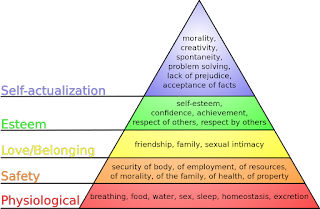 This year, Rebekkah Smith Aldrich published her book Sustainable Thinking: Ensuring Your Library's Future in an Uncertain World. Sustainable Thinking is part textbook, part workbook, and totally an appeal for libraries to engage their communities as a way to ensure the library's future.
This year, Rebekkah Smith Aldrich published her book Sustainable Thinking: Ensuring Your Library's Future in an Uncertain World. Sustainable Thinking is part textbook, part workbook, and totally an appeal for libraries to engage their communities as a way to ensure the library's future.Smith Aldrich draws from her education in Leadership in Energy and Environmental Design (LEED) to develop ideas on how a library can become more sustainable through developing relationships and engaging in more interactions. Rather than giving vague directions, she provides short worksheets at the end of each chapter, which allow library staff and trustees to put the text into meaningful actions in their communities. This is not a book which a staff member or library trustee should just read; it is a book that should lead to specific actions that will develop resiliency.
Smith Aldrich really grabbed my attention on page 18, when she discussed Maslow's hierarchy of needs in comparison with what libraries normally do. That section - and you'll have to read the book to understand it - is particularly important to me because I know of public libraries that are struggling with providing safe space, and at the same time defending what else they are doing. (Intrigued?)
Sustainable Thinking is a book which I hope is widely read by library leaders, including trustees. Even if it doesn't lead immediately to actions, I can imagine the useful conversations it might spark. Personally, I'm looking forward to giving my copy of the book to the president of the local library board of trustees, and then talking with him about it.
Smith Aldrich holds an MLS degree and the Leadership in Energy and Environmental Design (LEED) Accreditation for Professionals. She is also a certified Sustainable Building Advisor (cSBA), Smith Aldrich is well-known in New York State library circles and is having a huge impact on library-thinking across the U.S.
Rebekkah Smith Aldrich also published Resilience this year. According to Amazon, "Resilience is the second volume in a new series which focuses on emerging trends in the profession, provoking discussion on how to shape the future by sharing ideas and exploring joint solutions to the challenges facing libraries and society."
FTC Disclaimer: Digitization 101 is an Amazon affiliate and receives a small commission if you purchase a product or service from an Digitization 101 Amazon link.

